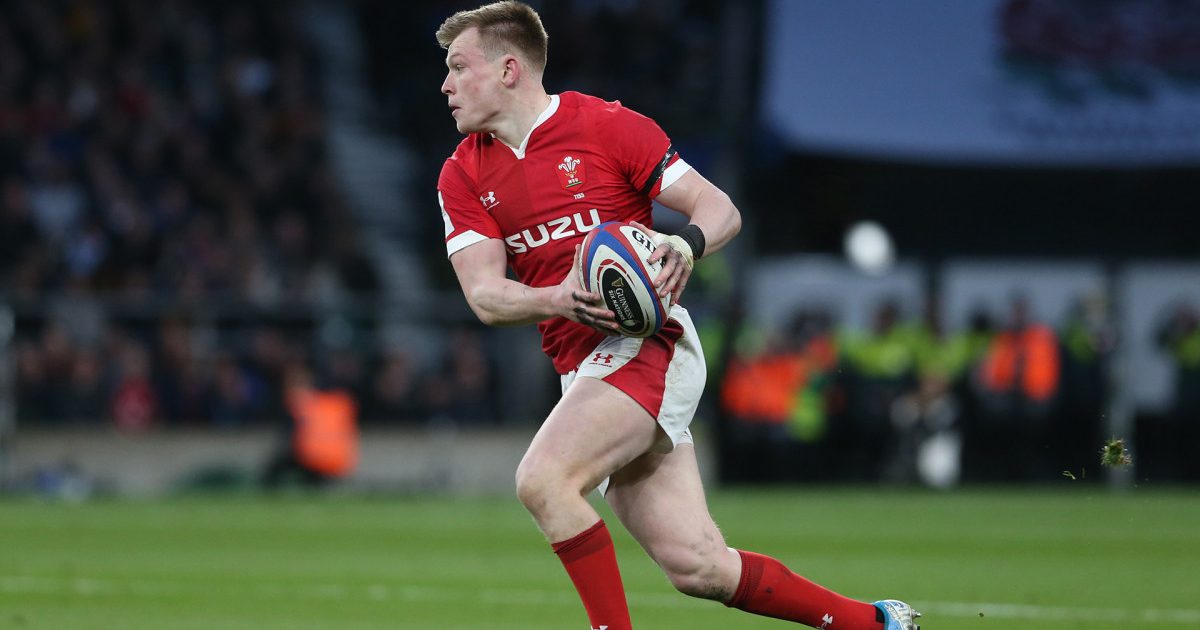'World's best players' - England's Saracens are coming for Wales warns centre

Nick Tompkins has outlined what makes Saracens’ England stars so special after making a case to line up for Wales against his Allianz Park team-mates in the Autumn Nations Cup.
Tompkins helped Wales end a run of six successive defeats with an 18-0 victory over Georgia in Llanelli on Saturday.
But Saracens centre Tompkins, who is on a season-long loan at the Dragons in Newport, knows it will be a lot tougher when Wales complete their Autumn Nations Cup group games against England next weekend.
The Six Nations champions overwhelmed Ireland 18-7 at Twickenham on Saturday to top Group A, with six Saracens players – captain Owen Farrell, Elliot Daly, Mako Vunipola, Jamie George, Maro Itoje and Billy Vunipola – in Eddie Jones’ starting line-up.
“I know a lot of their boys and they always come with that competitiveness, especially Faz (Farrell),” said Tompkins, part of a Saracens squad who won four Premiership titles and three European Champions Cups between 2015 and 2019.
“To watch those guys bringing it in training just like they do in games, there is no drop-off.
“I think that’s what makes some of them the world’s best players. That’s a credit to them as they bring it day-in, day-out.
“Their competitiveness on the pitch is just as much on the training pitch. That’s what makes them so good.”
Tompkins’ midfield partner in Llanelli was the debut-making Scarlets centre Johnny Williams.
The Weston-super-Mare-born Williams, who qualifies for Wales through his Rhyl-born father, made a try-scoring appearance for England against the Barbarians in a non-capped international in June 2019.
It took Wayne Pivac 293 days to get a second Test win as Wales boss#WALvGEO #AutumnNationsCuphttps://t.co/w8LVJ7yiim
— RugbyPass (@RugbyPass) November 21, 2020
“He’s good, isn’t he?” Tompkins said. “You tell him to run at something and he goes at 100 miles per hour, he’s awesome to play with.
“He’s young, spirited and works hard. What more could you ask for? He fronts up as well.
“That for me is class to play outside him. He opens up space for you.
“He’s doing really well, working hard, doing everything he needs to push the guys ahead of him.”
Before beating Georgia, Wales had not won since their 2020 Six Nations opener against Italy in February and the pressure had grown relentlessly on Wayne Pivac.
Head coach Pivac described the victory as “a step in the right direction”, but England’s trip to Llanelli on Saturday will provide a far greater measure of how far Wales have travelled.
“It would be silly to say we don’t have to rise, we know what’s coming,” Tompkins said.
“It’s nice to win against this Georgian side, but we need to challenge ourselves to up it again to the next tier – that’s a no-brainer.
“You look at this England side and we’re desperate to put in a good performance and keep this good vibe going. That’s what we need as a team, we know we’ve got it in there.”
– Phil Blanche

















































